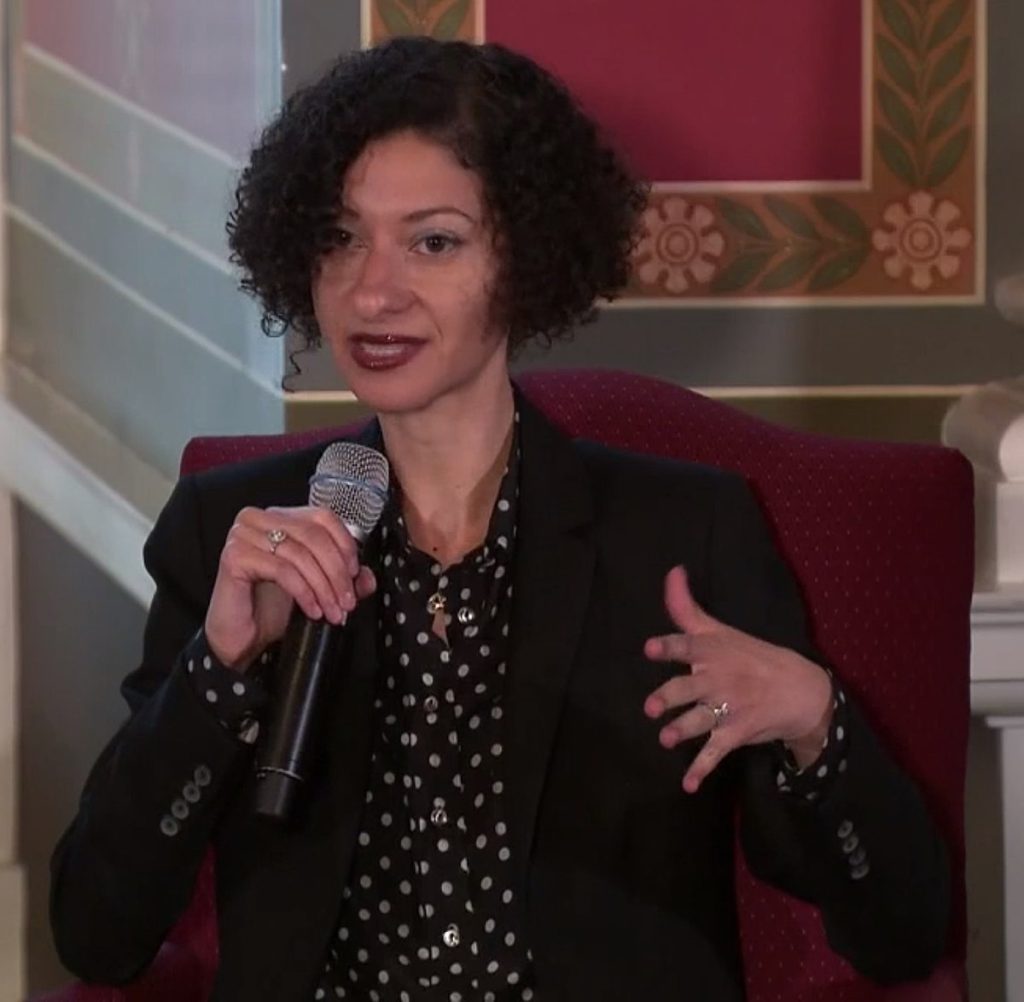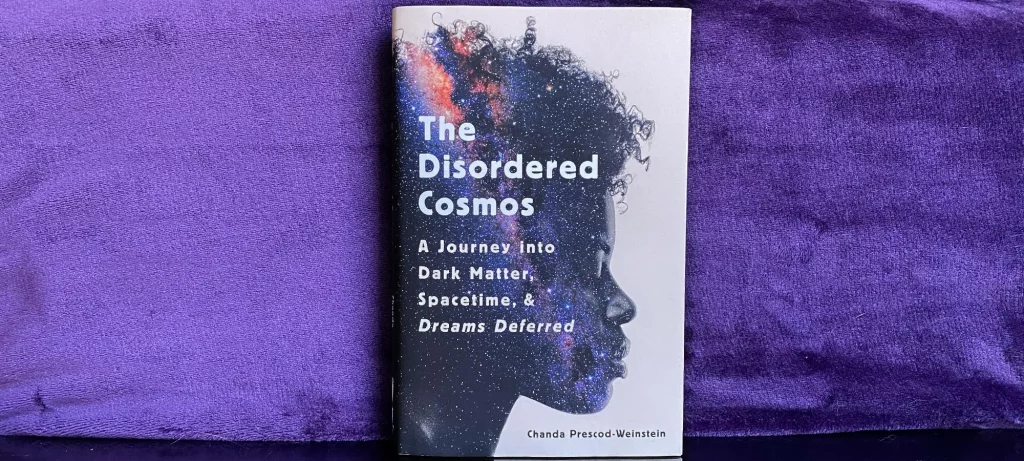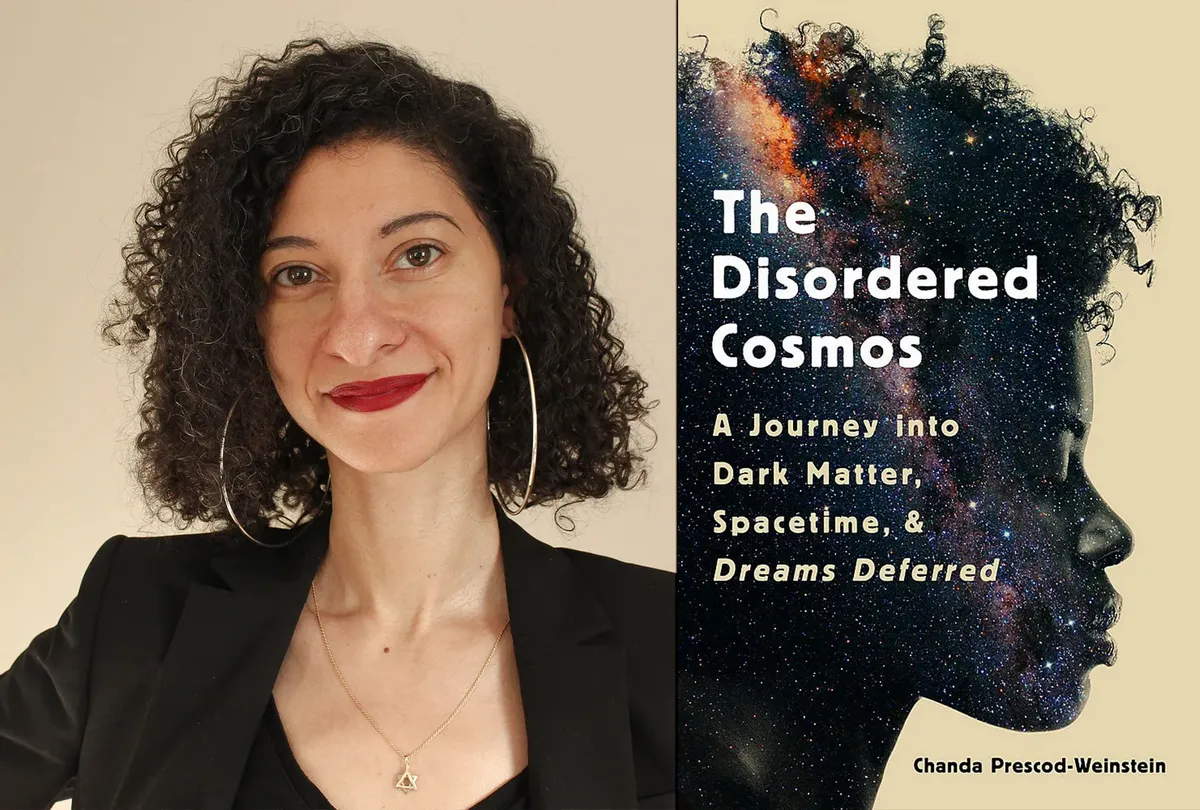Groundbreaking Achievement: Black Woman Physicist Secures Tenure, Adding to a Select Few.
Chanda Prescod-Weinstein is shattering barriers in the field of physics and realizing her ambitious childhood aspirations as the inaugural Black woman to achieve tenure in particle theory or cosmology theory.

Chanda Prescod-Weinstein fondly recalls a moment from her childhood when she pointed to a luminous streak across the sky and asked her father, “What is that?” She chuckled as she recounted her father’s reaction, saying, “He just looked at me as if to say, ‘What… is wrong with you?'” He then informed her that it was the Milky Way.
Almost three decades ago, during a camping trip amidst the towering giant sequoias, neither of them could have foreseen that the 14-year-old Prescod-Weinstein would one day become a theoretical physicist specializing in early universe cosmology, despite her budding interest in the field. Growing up in the light-polluted environment of Los Angeles had deprived her of the chance to study the night sky, making it necessary to venture far from the city to witness the awe-inspiring sight of the Milky Way.
Today, the once-unfamiliar galaxy is not only the subject of her expertise, but she has also become a groundbreaking scholar. Recently, in June, she achieved tenure at the University of New Hampshire (UNH), a remarkable milestone that places her as the first Black woman in the nation to earn tenure in particle theory or cosmology theory, as recognized by African American Women in Physics, Inc. (AAWIP). The organization celebrates the achievements of Black women in physics, tracking the number of doctorates and those working in the discipline.
According to Jami Valentine Miller, the founder and CEO of AAWIP, “The number of Black women who have ever earned tenure in physics departments in America is smaller than 20. The impact of her receiving tenure is significant and worthy of note because it provides academic freedom and will enable her to continue research that changes our understanding of the universe. Her impact on physics cannot be overstated.”
With her mother hailing from Black Barbadian heritage and her father from Eastern European Jewish heritage, Prescod-Weinstein’s path to tenure was far from certain. Raised predominantly by her mother in El Sereno, a predominantly working-class and Latinx neighborhood on Los Angeles’ Eastside, her journey was marked by unique challenges and experiences.
Encouraged by caring middle and high school teachers who nurtured her passion for science, she eventually found herself in an entirely new world, though still on Earth: Harvard. Her journey, along with her work in physics, is eloquently documented in her 2021 book, “The Disordered Cosmos: A Journey into Dark Matter, Spacetime, and Dreams Deferred,” which received the prestigious Los Angeles Times Book Prize in science and technology. Her remarkable achievements have not gone unnoticed, as she has been honored with various accolades, including the 2023 Cottrell Scholar Award from the Research Corporation for Science Advancement and an Eric and Wendy Schmidt Award for Excellence in Science Communication for her impactful articles that promote scientific understanding among the general public.
Aside from her contributions to physics, Prescod-Weinstein also holds a core faculty position in the women’s and gender studies program at the University of New Hampshire (UNH). Recently, she launched the Cite Black Women+ in Physics and Astronomy Bibliography, an invaluable database recognizing the published work of Black women and gender minorities with Ph.D.s in those fields in the United States over the past 50 years.
In an interview with The 19th, she discusses her journey to tenure, the significant role her childhood and education played in preparing her to make history, and the importance of providing young people with opportunities to experience the wonder of spotting the Milky Way in a dark night sky.
My response to receiving tenure was one of immense pride and gratification. Upon learning that the tenure was indeed going to materialize, my initial reaction was mixed with sorrow, given that I belonged to a close-knit cohort of Black students in theoretical physics who pursued our Ph.D.s together. Regrettably, among my group of friends, I am likely to be the sole individual to achieve tenure in our lifetime. Speaking about this matter is challenging for me, as it evokes emotions that can bring tears to my eyes.
At the same time, I felt a sense of relief, which may have been the predominant feeling. The journey to this point was arduous, and there were instances when I faced unnecessary hardships that should never have occurred. While I know I should take pride in my accomplishments, it is still too early to allow this feeling to overshadow everything else. The world is facing numerous challenges and difficult circumstances, particularly with the ongoing pandemic, which remains a deeply traumatic collective experience for all of us. Celebrating personal milestones amidst such adversity feels complex and difficult.

In “The Disordered Cosmos,” there is a chapter titled “The Physics of Melanin,” dedicated to exploring the subject of colorism. This topic holds great significance because it delves into the complexities and impacts of discrimination based on skin color within various communities and societies. By discussing colorism, Dr. Chanda Prescod-Weinstein sheds light on the pervasive issue of prejudice and bias that can exist even within marginalized groups, and how it intersects with science and academia. Addressing this matter is essential for fostering understanding, promoting inclusivity, and challenging harmful social constructs that perpetuate inequality and hinder progress in the scientific community and beyond.
During her childhood, her interest in math and science was sparked.
At the age of 10, my interest in math and science was ignited when my mother took me to watch the documentary “A Brief History of Time,” centered around Stephen Hawking and based on the book with the same title. Witnessing the profound insights of Hawking and how he delved into mathematical descriptions of the universe, I was captivated, and I knew right then that being a theoretical physicist was the career I aspired to pursue. Eager to delve deeper, I asked my mom for a copy of the book, though she initially had reservations about its complexity. However, my uncle ultimately gifted me the book for my 11th birthday.
Although I couldn’t grasp everything at such a young age, I had access to the internet, and I discovered the Cambridge University website, where I found Stephen Hawking’s email address. Fueled by curiosity and determination, I decided to reach out to him and inquire about the path to becoming a theoretical physicist. To my surprise, one of his graduate students responded to my email, outlining the steps I needed to take, including attending a top university, applying to graduate school, and obtaining a Ph.D. I immediately devised a plan to pursue this dream, and that plan became the driving force behind my journey into the world of physics.
Studies suggest that the middle grades serve as a critical juncture for girls in math and science, as many experience a decline in confidence in their abilities during this period.
“I was incredibly fortunate in this regard. During my fifth-grade year, I had the privilege of having an exceptional Black teacher named Frank Wilson for a science elective. He noticed my enthusiasm for science and shared this insight with my mom. Mr. Wilson continued to be a significant presence in my academic journey, serving as my pre-algebra teacher in sixth grade and my algebra and physical sciences teacher in seventh grade. His support and mentorship during this critical period were invaluable.”
“Even as I transitioned to a different school for high school, fate seemed to be on my side as Mr. Wilson secured a teaching position at my new school. His unwavering support continued, and he went on to write one of my college recommendation letters, further solidifying the positive impact he had on my academic and personal growth.” Dr. Chanda said.
“After attending Harvard, having come from a working-class background in El Sereno, Los Angeles, my experience at the prestigious institution was a mix of awe and challenges.”
“Believing in my own abilities and skill set, I never considered myself inherently better or smarter than others. I didn’t see myself as a divinely chosen global leader. However, upon arriving at Harvard, I encountered a pervasive messaging that emphasized our uniqueness and superiority. This perspective clashed with my values, and I felt uneasy with this notion of being different or better than others.”
“During my first year, I had a conversation with fellow Black students who believed that attending Harvard meant we were destined to lead the next civil rights movement. However, I disagreed, feeling that our role was more supportive and that we should take a back seat in grassroots movements. This difference in mindset made it challenging for me to find my place politically within the Harvard community.”
Overall, Harvard presented a mix of admiration for its academic excellence and an internal struggle to navigate the prevailing mindset that sometimes clashed with my own beliefs and values.
Indeed, I encountered academic challenges during my educational journey. While my teachers were supportive and dedicated, I faced some disadvantages, particularly in my calculus class in high school. Unlike students from prestigious boarding schools like Exeter Academy or Andover, my calculus class had 45 students, making it difficult for my teacher to provide the same level of individual attention.
As a result, I found myself at a disadvantage, especially when it came to systematic problem-solving. While some students had received thorough instruction in this area, I had only completed one calculus class and followed it with two years of independent study in AP Physics and AP Calculus BC. It became apparent that some of my peers were better prepared and more advanced than I was.
At that age, such experiences can lead to feelings of self-doubt, questioning one’s intelligence, or even contemplating whether a particular field is suitable for them. Many of us tend to operate with a fixed mindset about intelligence, assuming that those with better resources must possess more powerful intellect.
In hindsight, I would advise my younger self, and now I try to communicate to students, that access to better resources doesn’t equate to inherent intelligence. Everyone’s path is unique, and the key is to focus on personal growth and dedication rather than comparing oneself to others with different opportunities.
As an adult, my ideological perspectives often set me apart from my colleagues. I firmly believe that being Black doesn’t mean supporting any scientific endeavor without consideration for its ethics and consequences.
I strongly advocate for bringing a sense of ethics into our work. It is crucial to question the potential impacts of our projects and tools. For example, if we are developing a new tool for a company like Raytheon, we must consider whether that tool could be used against those who are fighting for their lives in the streets. We carry the responsibility to contemplate the global implications of our scientific pursuits, and this responsibility applies to all scientists.
The struggles and hardships endured by Black people, and the necessity for some to face violent institutional authority while fighting for their lives, should make us even more aware of why we must be cautious about engaging in projects that could potentially harm others. Our history and the present challenges we confront underscore the importance of being attuned to the ethical considerations surrounding our work and the potential consequences of our scientific endeavors.
My aspiration is to ensure that Black people have equal access to the night sky, as I believe it can serve as a catalyst for reimagining our social structures and inspiring us to create a better world to sustain ourselves. As we face pressing ecological crises, it becomes crucial for every child to have the opportunity to marvel at the night sky and experience moments of wonder.
To achieve this, we need to address a range of interconnected issues. First and foremost, we must ensure that children are not hindered by basic necessities like hunger and lack of clean water, which can distract from the beauty of the night sky. Providing access to nutritious food and clean water is essential.
Additionally, we need to consider the needs of children with disabilities who may require mobility devices to access open areas where they can enjoy the night sky. This involves discussions about improving public transportation systems that can take people to places with unobstructed views of the night sky.
We must also confront the detrimental impacts of mass incarceration, which not only punish the individuals incarcerated but also have far-reaching consequences on their families. By addressing these issues and making changes in our priorities, we can work towards a radical shift that ensures every child, regardless of their background, can experience the wonder of gazing up at the dark night sky. This endeavor requires comprehensive and transformative efforts to create a more equitable and just society.
I am referring to both enslaved Black people and our African ancestors. The notion that only White people have a connection to the night sky is entirely unfounded. Sky stories are an integral part of every community worldwide, including those from which Black people in the Americas, Africa, Europe, and other regions originate.
Some discussions tend to highlight the star stories of the Dogon people in Mali, West Africa, but I don’t believe we need to prove ourselves as technically proficient in this context. Instead, it is essential to recognize the significance of the night sky in various Black communities and cultures throughout history.
Regarding the period of enslavement, it is worth acknowledging the incredible resilience and ingenuity of our ancestors who were subjected to the oppressive conditions of plantations. Despite being denied access to education and basic tools, they were still able to demonstrate their expertise in various fields, including engineering and building. They engaged in scientific practices and problem-solving without the luxuries and resources most of us take for granted today. This resilience and resourcefulness underscore the rich scientific heritage of Black people throughout history, even in the face of extreme adversity.



